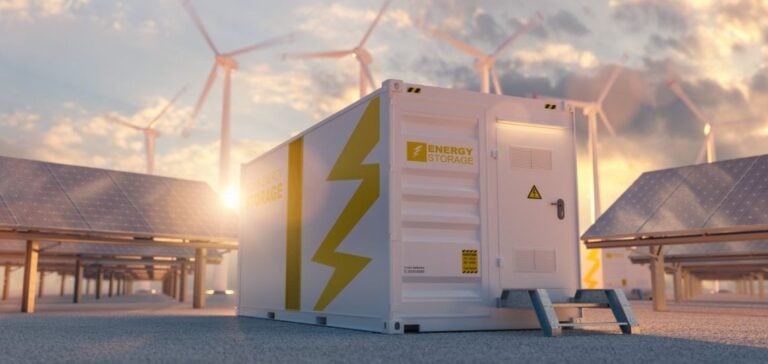Australia’s battery storage market is witnessing significant growth, driven by increasing energy price volatility in the National Electricity Market (NEM). According to a report by Wood Mackenzie, these conditions are enhancing project profitability and attracting new investments. However, storage development still lags behind the rapid expansion of renewable energy.
Over the past decade, Australia’s wind and solar capacity has grown sixfold to around 43 GW, supplying more than a third of the country’s energy. In contrast, battery investments represent less than one-tenth of this capacity, highlighting the need for solutions to manage renewable energy fluctuations and stabilize the grid.
A Pipeline of Large-Scale Battery Projects
Wood Mackenzie reports a promising pipeline of 60 GW in battery projects, representing an investment potential of over AUD 80 billion (USD 50 billion). Four-hour storage systems, in particular, demonstrate strong profitability. Their internal rate of return (IRR) is estimated to range between 13% and 15% in key regions such as Queensland, New South Wales, and Victoria.
This profitability is supported by daily electricity price volatility, with price spreads often exceeding AUD 100 per megawatt-hour and spikes reaching up to AUD 400. These fluctuations create significant opportunities for energy arbitrage, which could account for over 80% of battery revenues by 2030.
Cost Reductions and Growing Opportunities
The financial outlook for batteries is further strengthened by projected declines in investment costs. Wood Mackenzie forecasts a 20% reduction in costs for four-hour systems by 2030. For instance, a system operational in 2026 could generate an average of AUD 263,000 per megawatt annually, with maximum returns in Queensland.
Impact of Coal Plant Retirements
The progressive retirement of 21 GW of coal plants in the NEM by 2045 will create capacity gaps that batteries can fill. With renewable energy’s share expected to exceed 60% by 2030, the battery market will be critical to addressing increased price volatility and rapid price shifts.
Significant Policy Support
Initiatives such as the Capacity Investment Scheme provide financial backing for battery projects. However, the report highlights that high price volatility makes these investments viable even without government guarantees. This creates a unique opportunity for investors to capitalize on the rapid changes in Australia’s energy market.





















